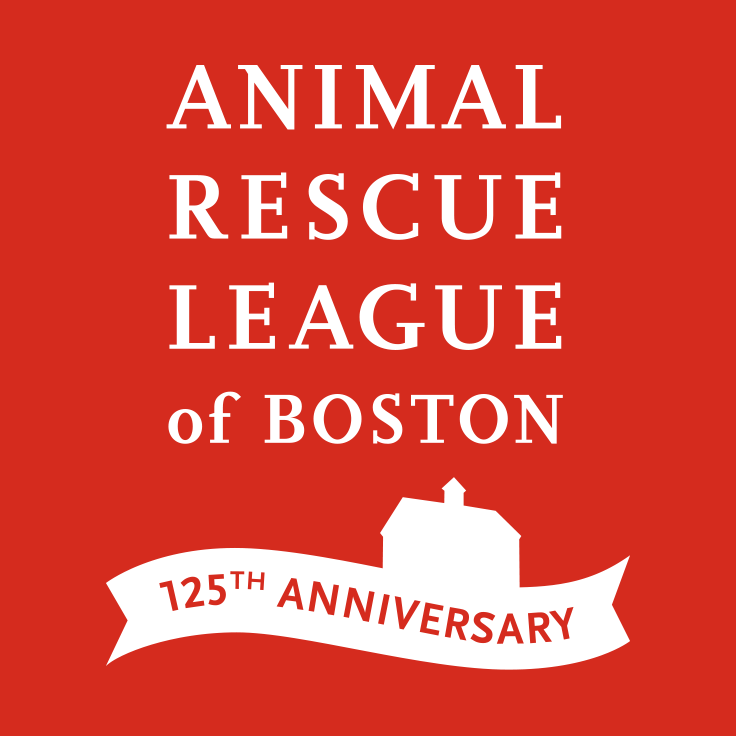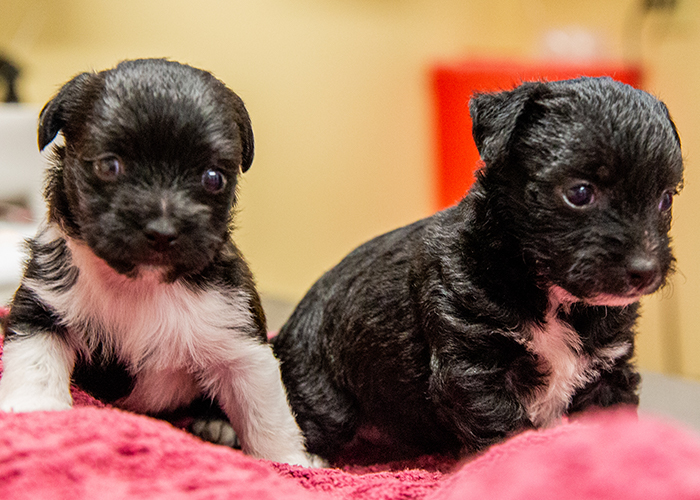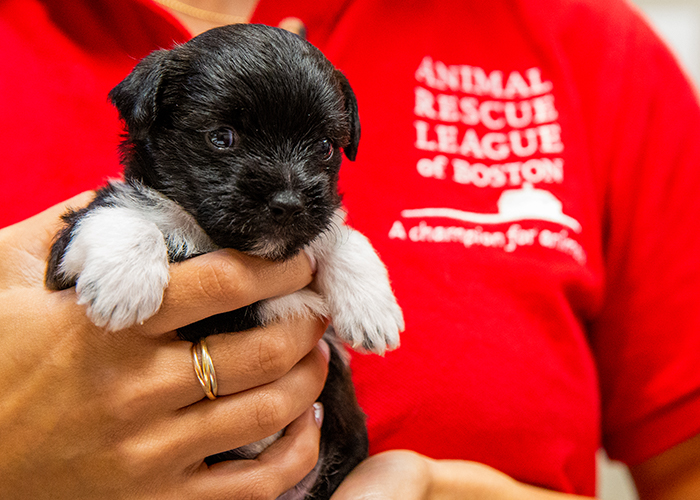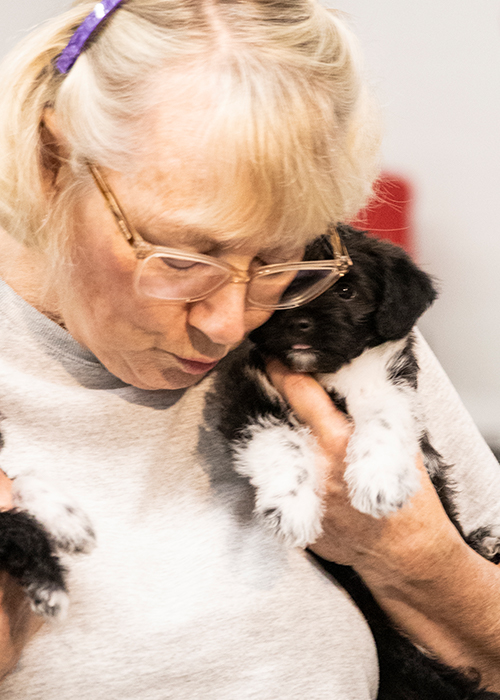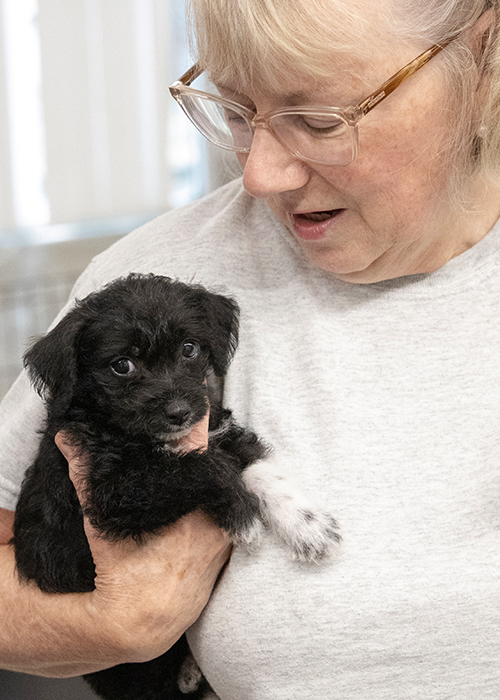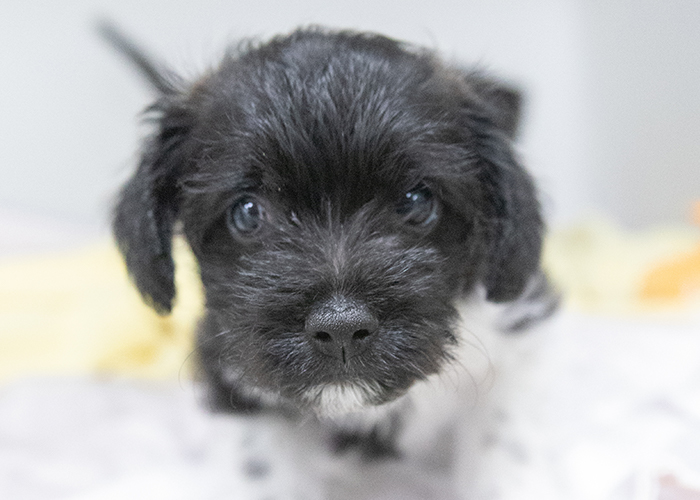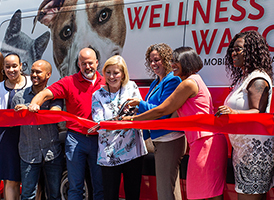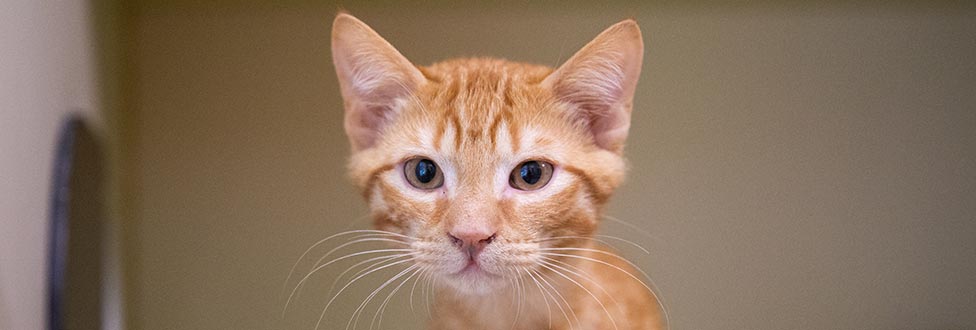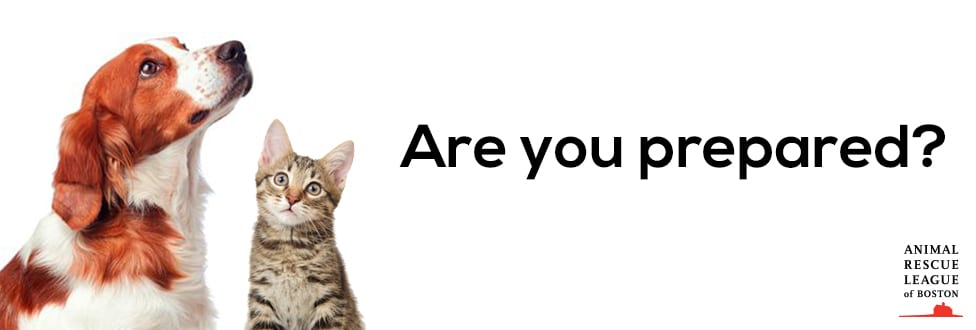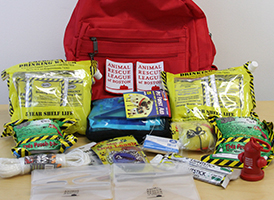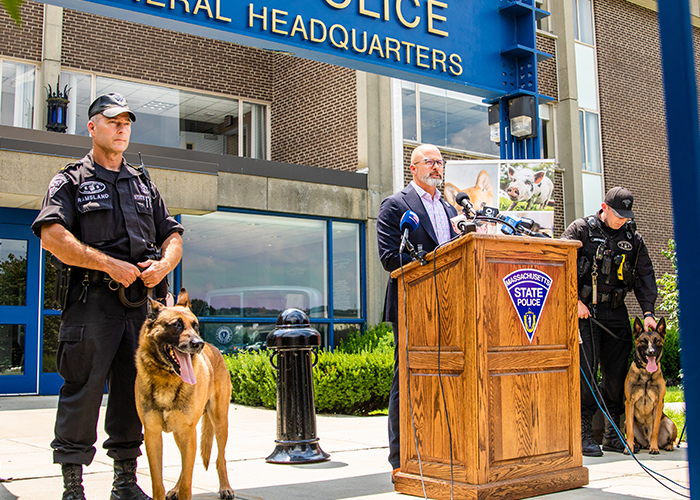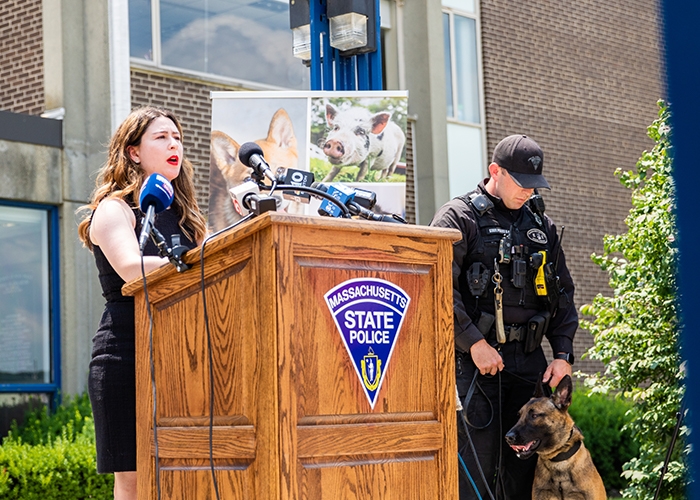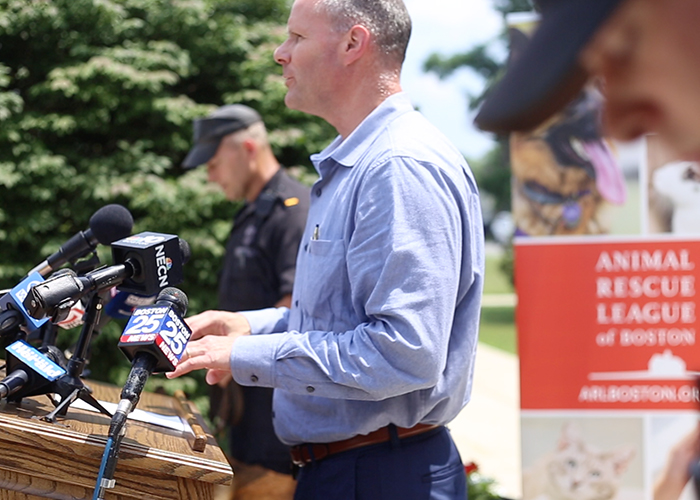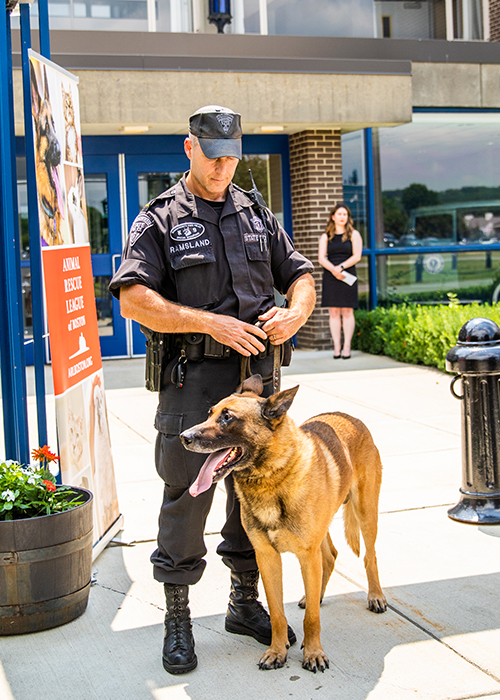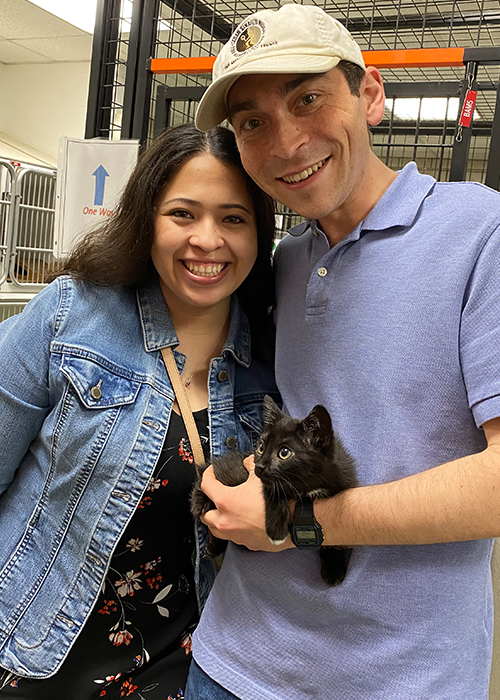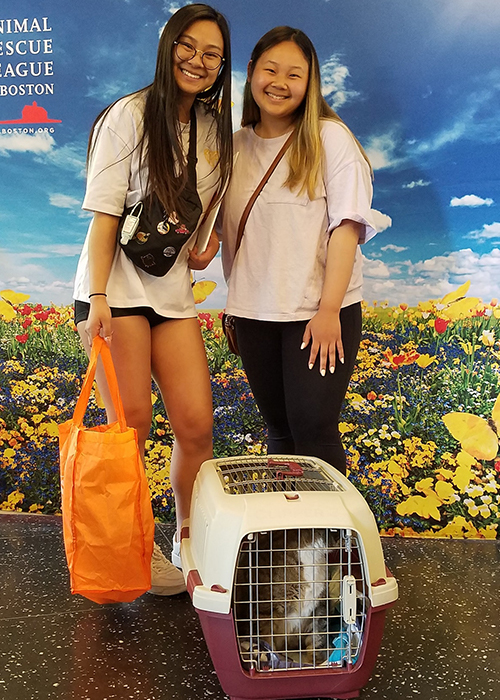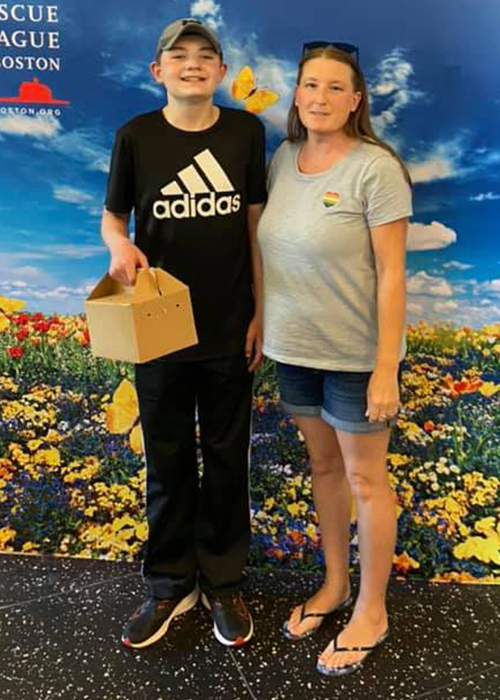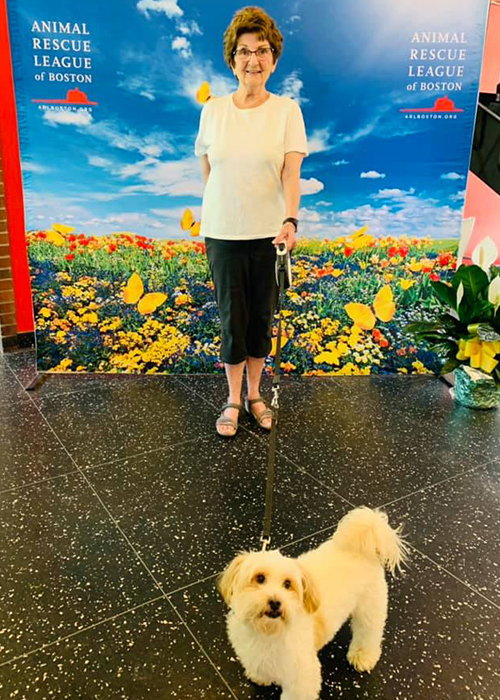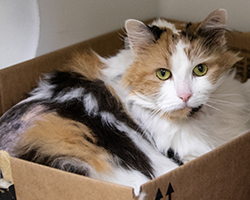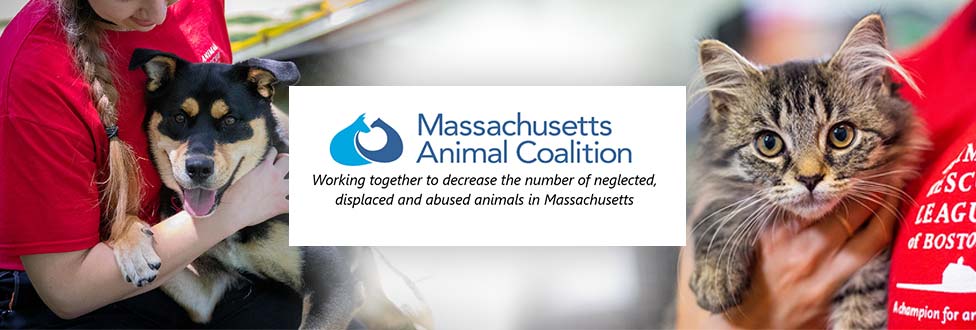ARL Caring for 2 Puppies Who Lost Mom
Mom dog died from complications 2 weeks after giving birth
The Animal Rescue League of Boston (ARL) is currently caring for two puppies who sadly lost their mother just two weeks after being born. The pups, who will soon be available for adoption, were surrendered and initially needed round-the-clock care.
To see local news coverage on this story click here!
Just two-weeks-old when they were surrendered back in June, the Parson Russell Terrier puppies were placed into foster care with a dedicated ARL volunteer and foster parent, and initially required bottle feedings every four hours round-the-clock, as nourishment is critical at that stage of life.
Additionally, because the puppies no longer had mom to rely on, they needed constant monitoring to ensure their health and safety.
“It’s very important to wake them every four hours and give them the nourishment that they need because they are very vulnerable at that stage,” foster parent Margy Ronna said to WCVB. “Then after a couple of weeks they are ready to learn how to walk and run, and their exercise area needs to be bigger.”
Very rarely does ARL see puppies this age, however this was a special situation born out of tragedy after their mother passed likely due to birth complications, and ARL was ready to take on the challenge to allow the puppies to grow and thrive.
Now at 7 weeks old, the puppies have made tremendous progress, are transitioning to solid food and are well on their way to happy and healthy lives.
Please note: the puppies are currently not available for adoption.
